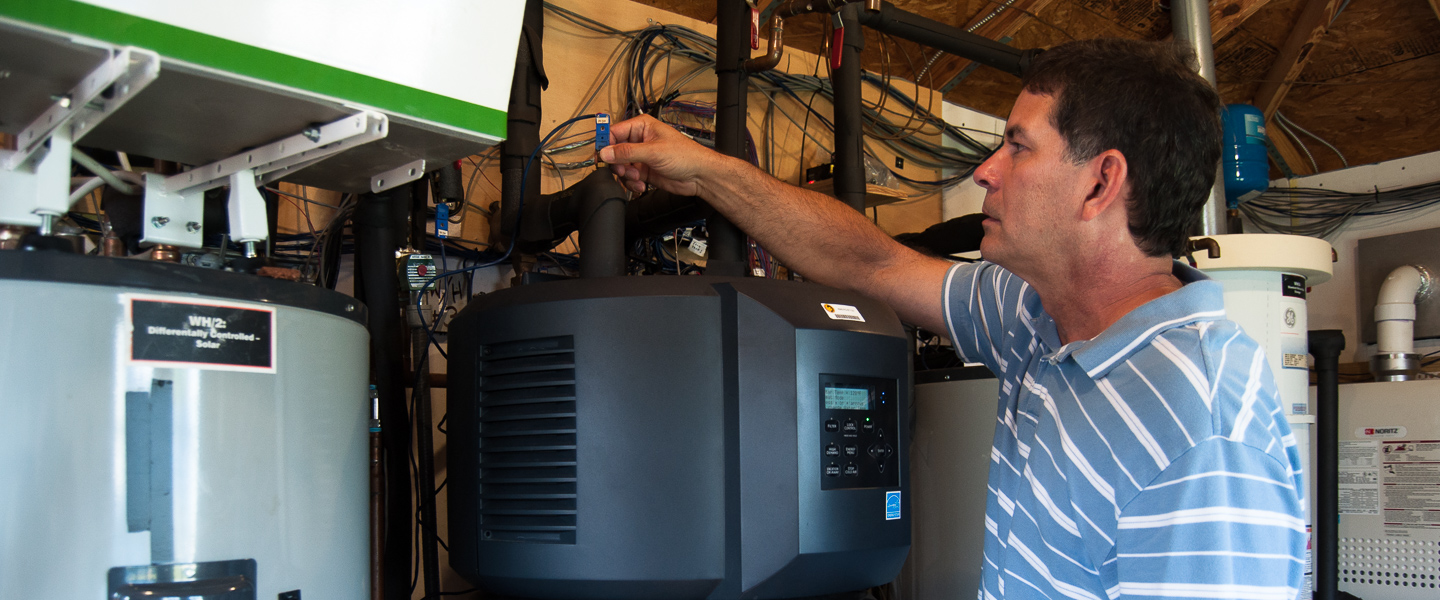Residential water heating accounts for 15-20% of the energy used in homes, which makes choosing a water heater an important decision, especially since it’s only made about every 10 years. A variety of water heater types are on the market. How do they compare in performance? Researchers at UCF have evaluated water heating systems both in a controlled environment and in the field.
Side-by-side testing of different residential water heating systems—standard electric, solar thermal, natural gas, heat pumps, tankless and hybrid systems—in an unconditioned building that resembles and can exceed garage-like temperatures in Central Florida was performed in the Hot Water Systems Laboratory.
Electric resistance storage water heaters were replaced with heat pump water heaters (HPWH) in eight Central Florida homes in 2013. Comparison of one year pre- and post-retrofit hot water energy showed 68.5% (5.3 kWh/day) sub-metered savings. Beyond heating water efficiently, HPWH create cool air as a byproduct, which could be used to supplement space cooling.
In a 2016-2017 study, a solar photovoltaic-assisted heat pump water heater (PV-HPWH) achieved an 83% reduction in water heating energy compared with electric resistance.
Years of Research: 2009-Current
Sponsored by: U.S. Department of Energy Building America program, Florida Natural Gas Association (FNGA), and cost shared with private industry.
Suggested Publications
- Potential of a Very High Efficiency Solar-Assisted Heat Pump Water Heater
- PV-driven Heat Pump Water Heater
- Side-by-Side Testing of Water Heating Systems: Results from the 2010-2011 Evaluation
- Side-by-Side Testing of Water Heating Systems: Results from the 2009-2010 Evaluation
- Estimating Daily Domestic Hot-Water Use in North American Homes
- Measured Performance of Ducted and Space-Coupled Heat Pump Water Heaters in a Cooling Dominated Climate
